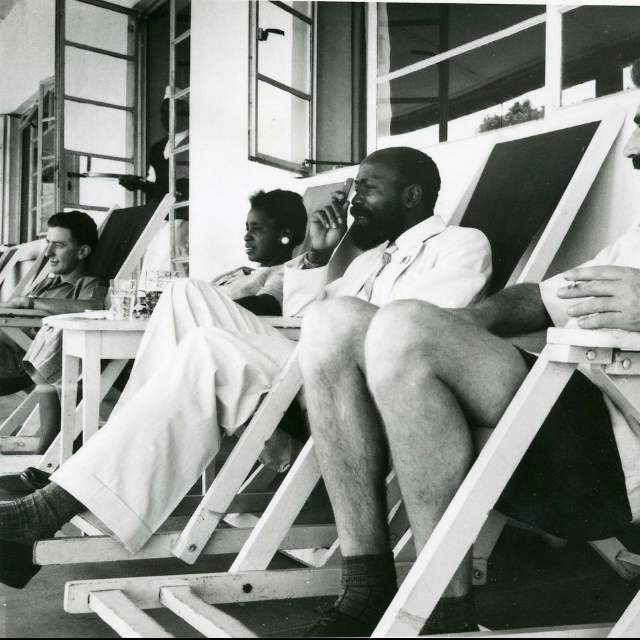Ali Kamutsitsi Gunde
** – Saturday October 5, 2024** –
“…Choose peace rather than confrontation. Except in cases where we cannot get, where we cannot proceed, or we cannot move forward. Then if the only alternative is violence, we will use violence”.- Nelson Mandela, during a visit to Palestine, 1999.

A new book is set to make waves in Malawi’s historical landscape by shining a spotlight on the seemingly forgotten Mwanza War of October 1967.
This pivotal event, which unfolded in Malawi’s southwestern Mwanza district, has long been overshadowed in the nation’s political history. But the forthcoming publication by the Lost History Foundation (LHF), promises to bring the story back into public consciousness.
The book dwells on the perspectives of those who identified themselves as freedom fighters, aiming to liberate Malawi from the authoritarian grip of the one-party state under Dr. Hastings Kamuzu Banda.
What happened in Mwanza?
At the beginning of the year 1967, an ambitious group of Malawians previously called the Saigon (or Group of 21), led by Malawi’s former Home Affairs Minister Yatuta Chisiza, embarked on a daring mission to militarily overthrow the Malawi Government of Dr. Kamuzu Banda.
On Saturday 30 September 1967, 17 of them crossed into Mwanza district of Malawi from Tanzania through Zambia and Mozambique, brimming with revolutionary fervor and a relentless determination to reshape Malawi’s destiny.
Operating under the banner of a political party called Umodzi Ufulu Malawi Africa (UUMA), founded in Tanzania in late 1966, their goals were clear and unwavering: to remove Dr. Kamuzu Banda’s dictatorial government, to break the stranglehold of the Malawi Congress Party (MCP), and to free Malawians from the oppression and exploitation that had defined their lives since the cabinet crisis of 1964.
Told through the eyes of the UUMA fighters themselves, the book offers a deep dive into their motivations, ideologies, and personal struggles. “These voices, which were silenced or marginalized, now have a platform to be expressed through this book in light of a struggle for freedom in Malawi,” said Dr. Paliani Chinguwo (PhD), coordinator of the book project. “What we have tried to do in this book is to show how these individuals believed in a just cause and their vision of a more democratic future for Malawi…We are essentially presenting an alternative narrative to the whole story.”
The climax of the Mwanza War occurred on Wednesday 11 October 1967, when UUMA leader Yatuta Chisiza and his lieutenant Lutengano Mwahimba were shot dead, while five UUMA fighters retreated to Zambia.
At this point, nine of them had been captured by Malawi’s security forces. Against this backdrop, the book examines the official narrative which claims that state security forces suffered no casualties whatsoever during the war. The book therefore presents compelling evidence that challenges this official narrative.
The Global Context: Cold War Geopolitics
The story of the Mwanza War cannot be told without understanding the broader global political landscape in which it took place. During the 1960s, the Cold War between Western capitalist nations and Eastern communist powers was at its height, and Africa was often caught in the crossfire of this ideological battle.
The book contextualizes the Mwanza War within these global tensions, highlighting the involvement of international actors such as South Africa’s African National Congress (ANC), Zimbabwe African People’s Union (ZAPU), and the governments of Cuba, China, the Soviet Union, Tanzania, Zambia, and Algeria. These actors played a crucial role in shaping the motivations for the Mwanza War.
By incorporating this global context, the book not only provides a nuanced understanding of the Mwanza War but also shows how local struggles for freedom in Malawi were part of larger, transnational movements seeking to reshape the global order during the Cold War era.
Unearthing Hidden Narratives
This book on the Mwanza War was conceived as part of the LHF’s mission to bridge gaps in historical knowledge. The seeds for this project were planted in March 2018 when Counsel Dengu Matumbi and Dr. Paliani Chinguwo met at Mandala House in Blantyre, Malawi.
Their shared curiosity and passion for uncovering forgotten historical truths led to a conversation about the significance of the Mwanza War. What began as a casual discussion over lunch time, quickly turned into a dedicated research effort, leading to the creation of a video documentary on the Mwanza War.
Just before the release of the video documentary in 2019, it was felt that the complexities of the Mwanza War could not be adequately captured within the limited scope of a film. “It became clear that the story of the Mwanza War was too rich and complex to fit into a documentary. This is why we decided to translate the research into a book,” Dr. Paliani Chinguwo explained. The decision allowed for a richer, more detailed account of this critical moment in Malawi’s history.
According to Dr. Paliani Chinguwo, the sources of information for this book were extensive and diverse. They included archival materials, such as literature issued by UUMA, court records, and police reports as well as interviews with key individuals who had firsthand knowledge of the events.
Among key informants were Frank Jiya, the last surviving member of the UUMA fighters, and Al Osman, a journalist who covered the Mwanza War for the Times newspaper.
Furthermore, the notes by George Kanyanya, Mansion Chiumia, JB Stennings Msiska three of the five UUMA fighters who survived the Mwanza War as well as writings by Yatuta Chisiza also provided critical insights. In addition, interviews with Major General Buxton Namwali who was part of the command center for the Malawi Rifles, as well as accounts from military experts and close relatives of the UUMA fighters, enriched the book’s narrative with personal perspectives and military details.
As part of the legacy of the Mwanza War, the book delves on the General Amnesty Act of 15 July 1993 which granted amnesty to Malawians for politically motivated activities. This landmark legislation granted general amnesty to Malawians, both within and outside the country, for politically motivated activities committed before the Act’s commencement. These activities included actions taken to promote the objectives of political parties, pressure groups, or movements, as well as any efforts aimed at advocating for a change of government in Malawi.
The Act mandated that any ongoing legal proceedings related to such activities be discontinued, and individuals in custody for these offenses were to be released. Additionally, those serving sentences for these politically motivated actions were to have the remainder of their sentences remitted.
Under this Act, the five surviving UUMA fighters in Zambia namely: George Kanyanya, Frank Jiya, Ian Munthali, JB Stennings Msiska and Mansion Chiumia saw their pending charges of treason withdrawn. They therefore returned to Malawi in 1993 without the threat of prosecution.
Upon their return to Malawi, the former UUMA fighters played pivotal roles in the political transition from a one-party state between 1993 and 1994. Subsequently, George Kanyanya became a cabinet minister, while Frank Jiya served as the Chair of the Board for the Electricity Supply Corporation of Malawi (ESCOM) during President Bakili Muluzi’s first term in office.
When Dr. Paliani Chinguwo was asked to clarify why this historic event is referred to in the book as a war, given that there were no civilian casualties and only 17 UUMA members were involved, he elaborated, “It’s important to remember that the narrative presented in this book reflects the perspectives of the UUMA fighters themselves. According to them, this was a war, they had come to fight in a war. Moreover, if we consider the fundamental definition of war, which describes it as ‘a state of armed conflict characterized by extreme hostility, aggression, and violence between organized groups or forces within a country or between countries,’ it becomes clear that the events in Mwanza in October 1967 fit this definition perfectly.”
When is publication expected?
According to Dr. Paliani Chinguwo, the manuscript is now complete and ready to be submitted to the publishers. However, he noted that there had been a special request from some of the relatives of UUMA fighters, who asked for additional time to gather and submit more information about their departed family members for inclusion in the book.
Recognizing the importance of these contributions to the historical record, a final deadline had been set for 30 November 2024 for all submissions from the relatives.
Once this additional material is reviewed and incorporated, the manuscript will be finalized and promptly sent to the publishers. Dr. Paliani Chinguwo emphasized that this brief extension is crucial for ensuring that the book reflects the full spectrum of personal stories and sacrifices made by the UUMA fighters, further enriching the historical narrative.
+++

